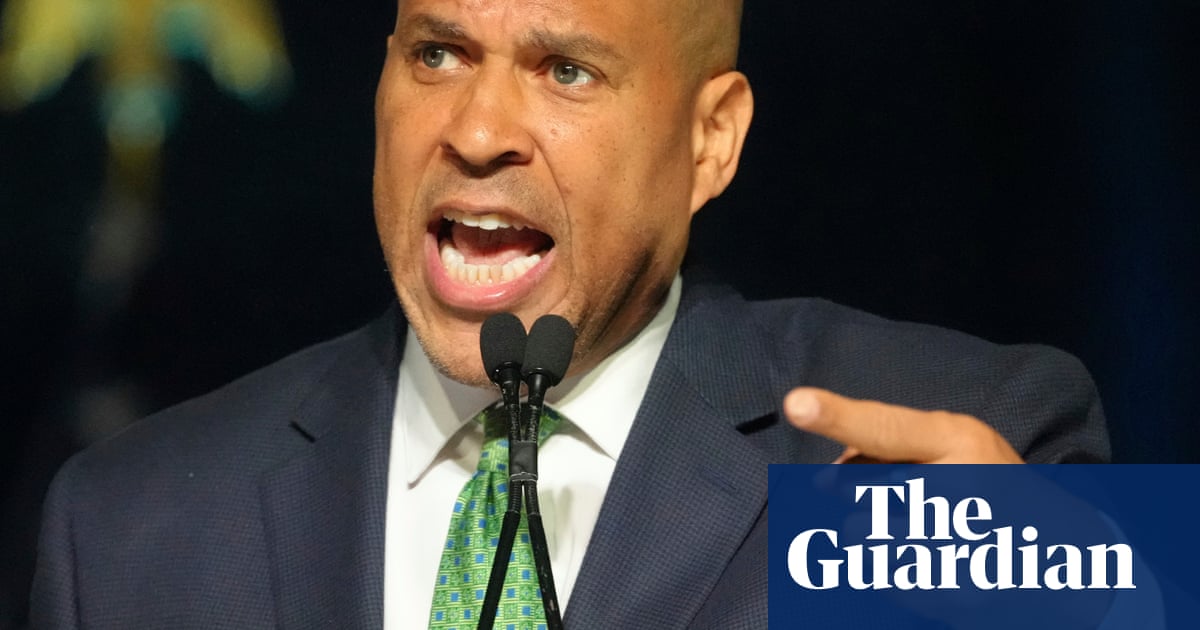Elon Musk and Cory Booker: A Political Clash of Titans
The political landscape in America is a dynamic tapestry, woven with the threads of unexpected alliances and heated rivalries. Recently, a noteworthy incident emerged when a prominent Democrat firmly rejected the notion of accepting campaign donations from tech billionaire Elon Musk. This decision unfolds against the backdrop of a public rift between Musk and former President Donald Trump, raising intriguing questions about influence, allegiance, and the future of political funding.
Cory Booker’s Stance
Cory Booker, a New Jersey senator and a leading figure among Democrats, unequivocally stated, “I would not accept money from Elon Musk for my campaign.” This declaration, made during an appearance on NBC’s Meet the Press, echoes a broader sentiment in the Democratic Party when it comes to navigating relationships with wealthy benefactors. Booker’s rejection highlights an inherent tension in American politics: the acceptance of funds from billionaires—often viewed as corrupting-influences versus the necessity of funding for campaigns in today’s highly competitive electoral environment.
Despite his refusal of Musk’s financial support, Booker added a nuanced caveat. He indicated that he would welcome any efforts from Musk that would raise awareness about economic issues, particularly criticisms of President Trump’s budget proposal, which Musk has labeled as fraught with fiscal irresponsibility. Booker paraphrased the legendary Paul Revere, emphasizing the need for urgency in alerting Americans about the dangers posed by certain legislative decisions.
The Trump-Musk Feud
The public spat between Trump and Musk has turned a spotlight on the intertwining of tech influence and political allegiance. Trump recently warned Musk of "serious consequences" should he align with Democratic candidates, underscoring the fraught nature of their relationship. This fallout stemmed from Musk’s outspoken criticisms regarding the proposed budget bill, which many believe could have dire economic repercussions for average Americans. The juxtaposition of Musk’s initial support for Trump, including substantial campaign contributions, with his current criticisms illustrates the fluid dynamics of political loyalty in a polarized environment.
Seeking Opportunistic Alliances
In the wake of this discord, Democrats are grappling with the potential opportunity to harness Musk’s notable influence for their electoral advantages. Congressman Ro Khanna has sought to engage Musk’s interest in speaking out against what he perceives as detrimental Republican policies, particularly regarding tariffs and fiscal irresponsibilities. Khanna’s perspective offers a more strategic approach, framing Musk as a potential ally against Trump, positioning him as a figure who could sway moderate opinions as the electoral climate heats up.
Divergent Views Among Democrats
However, not all Democrats are on board with a rapprochement toward Musk. Progressive figures like Bernie Sanders and Alexandria Ocasio-Cortez have vehemently criticized the billionaire’s growing influence, characterizing Musk’s actions as emblematic of a broader oligarchic trend in society. Sanders articulated concerns about the dangers of concentrated wealth and political power, suggesting that such dynamics undermine democratic principles. He likened the unfolding drama between Musk and Trump to a broader existential crisis regarding the health of democracy itself.
Musk’s Political Spending Shift
Complicating the narrative further, Musk has indicated a shift in his approach to political spending. Speaking at a forum in Doha, he remarked that he would be deploying "a lot less" capital in the political arena moving forward. His earlier contributions to Trump’s campaign underscore a dramatic pivot in his political engagement, as he distanced himself from the financial ties that once bolstered his political clout.
Economic Concerns at the Forefront
Both Musk and Booker share concerns regarding Trump’s ambitious budget proposal, which they argue could lead to considerable national debt and economic instability. In their critiques, they emphasize a moral argument, framing their shared apprehensions as not merely political but fundamentally ethical. Booker highlighted that this issue transcends partisan divides, framing it as a pivotal moral stance for the well-being of average Americans.
The ongoing interactions between these high-profile figures mirror the complex, ever-evolving nature of American political discourse. In the face of shifting allegiances and burgeoning tensions, the implications of their engagements will undoubtedly shape future electoral outcomes and the broader political narrative as the nation heads toward tumultuous elections.


